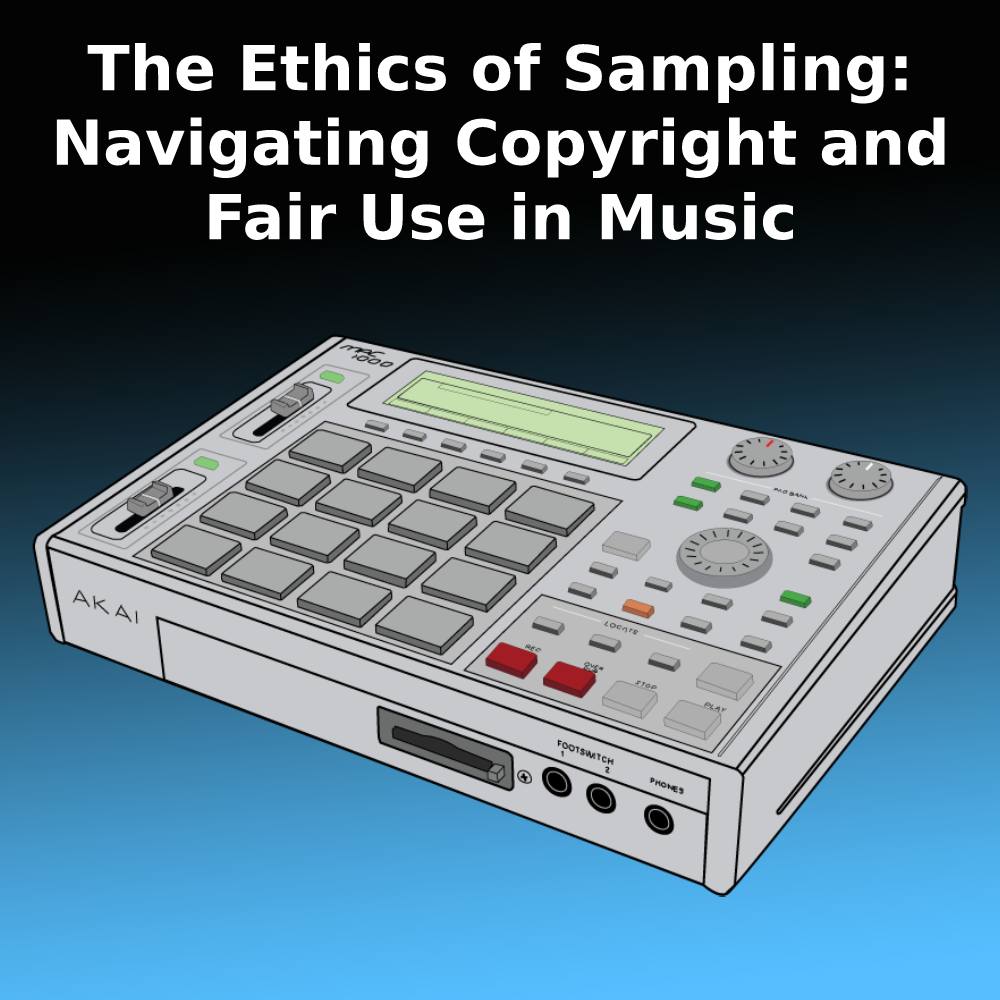Sampling is a widely-used technique in modern music production. It involves taking portions of pre-existing recordings and incorporating them into new compositions. With the rise of digital audio workstations and sample packs, it has become easier than ever for producers to use samples in their music. However, as with any creative medium, there are legal and ethical considerations to be aware of when it comes to sampling. In this article, we’ll explore the ethics of sampling and how to navigate copyright and fair use in sample pack production.
Firstly, it’s important to understand the basics of copyright law. Copyright grants the creator of an original work the exclusive right to use and distribute that work. This means that if you want to use someone else’s work in your own music, you need their permission to do so. Failure to obtain permission can result in legal action and hefty fines.
So, where does fair use come in? Fair use is a legal doctrine that allows for the limited use of copyrighted material without the copyright owner’s permission. The key word here is “limited.” Fair use is determined by a set of factors, including the purpose of the use, the nature of the copyrighted work, the amount used, and the effect on the potential market for the original work.
In the context of sampling, fair use is often invoked when a producer uses a small portion of a copyrighted work in a transformative way. Transformative use means that the sample has been altered in some way that makes it substantially different from the original work. For example, if a producer chops up a vocal sample and rearranges it to create a new melody, this could be considered transformative use.
However, it’s important to note that fair use is not a blanket license to use copyrighted material. Fair use is a complex legal doctrine, and what constitutes fair use can vary depending on the circumstances. It’s always best to err on the side of caution and obtain permission from the copyright owner whenever possible.
So, how can music producers navigate the murky waters of copyright and fair use? Here are a few tips:
- Use royalty-free samples. Many music producers create their own original samples or license samples from artists who have granted permission for their use. Using royalty-free samples can help you avoid any legal issues related to copyright infringement.
- Obtain permission from copyright owners. If you want to use a copyrighted work in your sample pack, it’s best to obtain permission from the copyright owner. This may involve negotiating a licensing fee or obtaining a sample clearance.
- Be transparent about your sample sources. If you use samples from copyrighted works in your sample pack, be sure to disclose the source of the samples. This can help avoid any confusion or legal issues down the line.
- Create transformative samples. When creating your samples, aim to create something that is substantially different from the original work. This can help you argue that your use falls under fair use.
In conclusion, sampling can be a powerful tool for music producers, but it’s important to navigate copyright and fair use considerations carefully. By using royalty-free samples, obtaining permission from copyright owners, being transparent about your sample sources, and creating transformative samples, you can create sample packs that are both ethically sound and legally compliant.
ALL OUR SAMPLES, LOOPS, AND PRESETS ARE 100% ROYALTIES FREE!
READY TO USE ON YOUR NEXT PRODUCTION
START DIGGIN NOW! LET’S GO!



